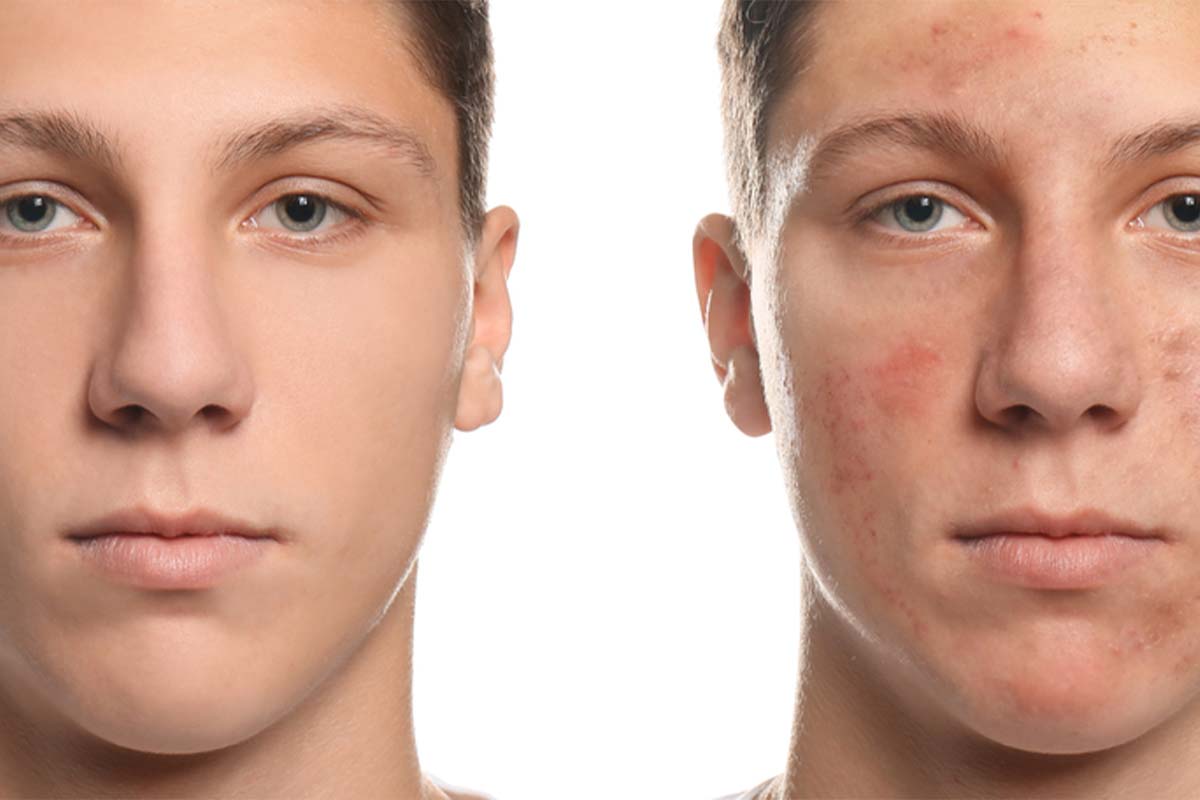Navigating the teenage years comes with its own set of challenges, and for many, acne is one of them. This pervasive skin issue can impact self-esteem and confidence, but the good news is that there are solutions. By understanding the factors that contribute to acne and exploring various treatment options, teenagers can take control of their skin health. Let's take a closer look at what causes acne and the treatments that can help.
Reasons for Teenage Acne
-
Hormonal Changes During puberty, hormonal fluctuations, especially the increase in androgens, stimulate the sebaceous glands to produce more oil. This excess oil, combined with dead skin cells, can clog pores and lead to acne.
-
Genetics Family history plays a significant role in determining who gets acne. If your parents experienced acne, there is a higher likelihood that you will too.
-
Diet While the relationship between diet and acne isn't fully understood, some studies suggest that high-glycemic foods, dairy products, and sugary items might contribute to acne flare-ups.
-
Stress Stress can trigger or worsen acne by increasing oil production and inflammation in the skin.
-
Improper Skin Care Using harsh or inappropriate skin care products can irritate the skin and exacerbate acne. It's important to use products that are non-comedogenic and suitable for your skin type.
Effective Treatments for Teenage Acne
-
Topical Treatments Over-the-counter topical treatments containing benzoyl peroxide or salicylic acid can help reduce acne by targeting bacteria and unclogging pores. Prescription treatments like retinoids may also be effective.
-
Oral Medications For moderate to severe acne, dermatologists may prescribe oral medications such as antibiotics, birth control pills, or isotretinoin to reduce inflammation and bacteria.
-
Proper Skin Care Routine Establishing a gentle skin care routine is crucial. This includes cleansing the face twice daily with a mild cleanser, using non-comedogenic moisturizers, and applying acne-fighting treatments as needed.
-
Healthy Diet and Hydration Maintaining a balanced diet rich in fruits, vegetables, and whole grains, along with staying hydrated, can support overall skin health.
-
Avoiding Triggers Identifying and avoiding triggers such as certain foods, stress, and harsh skin care products can help manage acne.
-
Professional Treatments In some cases, dermatological treatments such as chemical peels, laser therapy, and extractions may be recommended to manage acne.
Conclusion
Navigating the challenges of teenage acne can be daunting, but understanding the underlying causes and exploring effective treatments can make a significant difference. Hormonal changes, genetics, diet, stress, and improper skin care are key factors contributing to acne. By adopting a proper skin care routine, utilizing topical and oral treatments, maintaining a healthy diet, and avoiding known triggers, teenagers can manage and reduce acne outbreaks. Additionally, seeking professional help when necessary can provide targeted solutions for more severe cases. With the right approach, achieving clear and healthy skin is within reach, helping teenagers regain their confidence and well-being.


